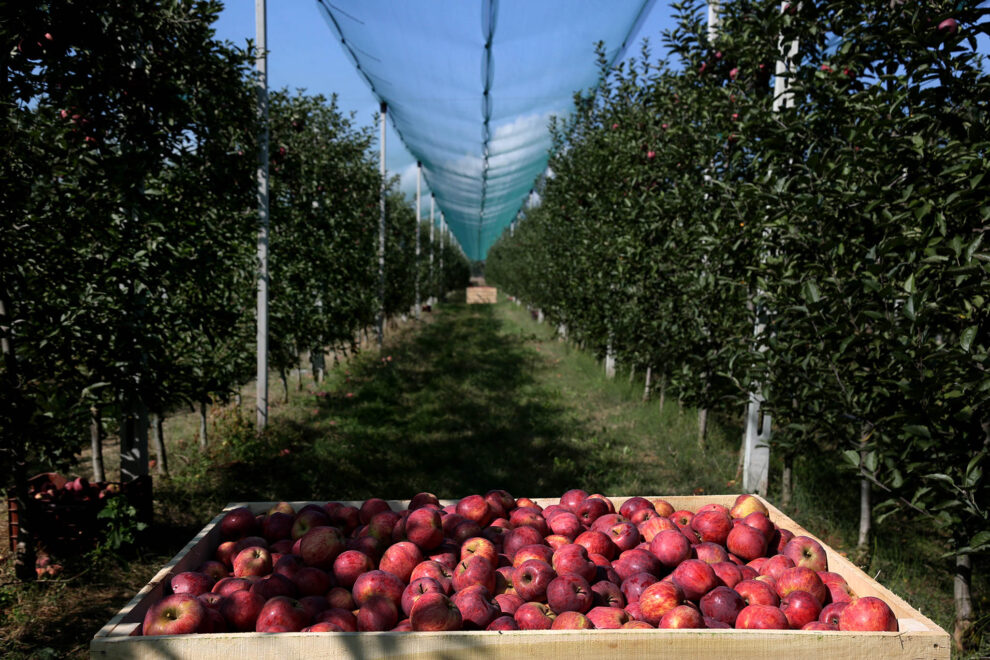Agricultural experts in Michigan are emphasizing the need to put more food on the table for families as food insecurity rises globally.
Panelists, including U.S. Rep. Elissa Slotkin, discussed the need to provide innovative solutions for farmers at an event hosted Tuesday, Sept. 5, by Michigan State University. It will take research, sufficient public support and funding to properly address the problem, they said.
“My guiding principle is the United States of America should always be able to feed itself by itself, that bad things happen when we create dependencies on other countries for basic goods, and that is twice as important when it comes to our food and feeding ourselves,” Slotkin said.
The conversation is particularly relevant as the federal government works to finalize the Farm Bill, a massive piece of legislation critical to agriculture and food programs in the U.S. that is revised every five years.
Slotkin, who represents Michigan’s 7th Congressional District seated in Lansing, is the only member from Michigan currently sitting on the U.S. House Agriculture Committee, which she joined in January.
She shared a conversation she had with Sen. Debbie Stabenow, another Michigan Democrat who chairs the U.S. Senate Agriculture Committee. She asked Stabenow whether the country will be able to produce enough food without the need of emergency assistance from foreign governments. The answer was yes, she said, but only “largely by accident.”
Slotkin stressed the importance of farming research as agriculture becomes increasingly weaved with other issues, like national security and climate change. Events in recent years like the COVID-19 pandemic, unusually destructive weather, and Russia’s war with Ukraine have directly impacted global food insecurity by disrupting the supply chain and raising prices.
Less than 10% of American adults and adolescents are already not meeting their nutritional goals, as defined by the U.S. Centers for Disease Control and Prevention. Additionally, the latest data from the United Nations shows around 828 million people were affected by hunger in 2021 and 2.3 billion people around the world were considered moderately or severely food insecure. That’s an increase of 150 million and 350 million, respectively, before the COVID-19 outbreak in 2019.
It is important research institutions reach out to farmers, said Ken Nobis, a Michigan dairy farmer from St. Johns. By doing so, farmers can ”get the questions answered that are troubling us” in the form of data and developing technologies, he said.
Technological advancements have always been key to properly caring for farm animals or growing crops, but investments in these innovations have become stagnant in recent years, the experts said.
By 2019, federal agricultural spending had dropped from its peak almost two decades ago by about one-third when adjusted for inflation, according to the USDA’s Economic Research Service.
As the first agricultural school in the country, MSU itself has a long history of working to solve food insecurity.
A few examples cited by MSU Director of AgBioResearch George Smith include a $5 million grant from the U.S. Department of Agriculture’s National Institutes of Food and Agriculture to increase dairy production, as well as a special innovation lab where technology used to breed dried beans is being shared with partners in developing countries.
“We’re doing a lot, but there’s a call to action necessary,” Smith said. “We can’t address the challenges of the future… when the current levels of federal funding for research are not even close.”
President Joe Biden’s administration announced in 2021 a multiyear investment of $10 billion to promote food systems in the U.S. and globally through initiatives like Feed the Future. Among other things, the program provides financing for food security projects, research to reduce food waste and investments for climate sustainable agriculture development.
“These are the types of programs and investments that can help us improve global food and nutrition security over the long term and prevent the need for emergency food assistance in the future,” said Katie Lee, vice president of government affairs at the Farm Journal Foundation.
Source : Mlive












Add Comment